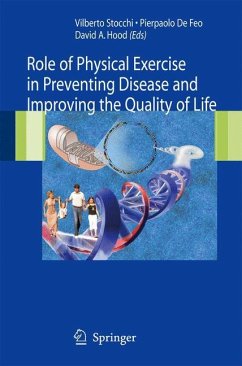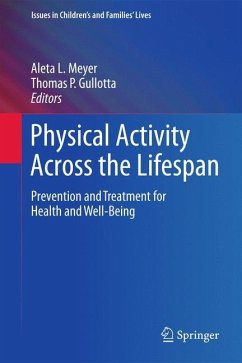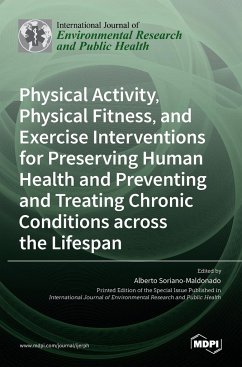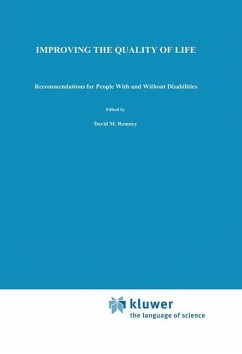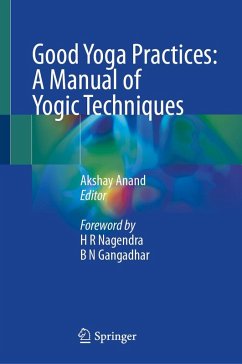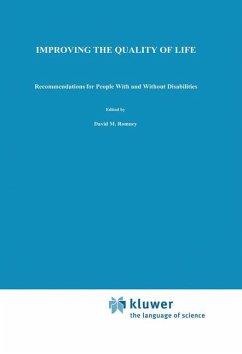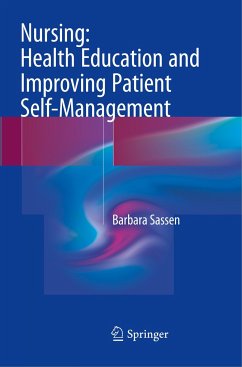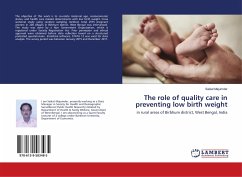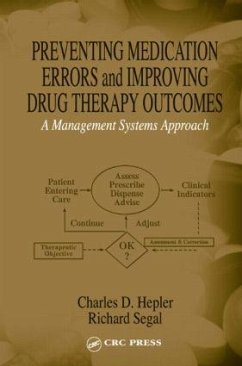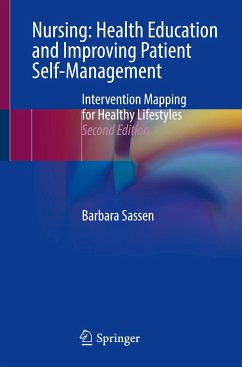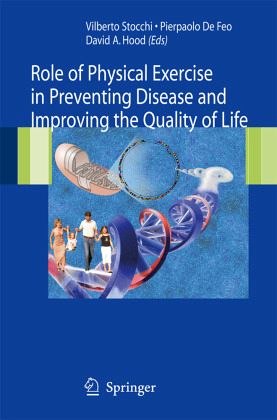
Role of Physical Exercise in Preventing Disease and Improving the Quality of Life
Versandkostenfrei!
Versandfertig in 6-10 Tagen
38,99 €
inkl. MwSt.

PAYBACK Punkte
19 °P sammeln!
Over the last decade studies have shown that physical exercise plays an important role in maintaining an individual's psycho-physical balance. In particular, it has been demonstrated that prolonged regular physical activity (now defined in scientific publications as chronic physical activity) helps to significantly reduce the incidence of neurodegenerative and neuromuscular diseases, which are often associated with ageing, while at the same time bolstering the immune system.Promoting physical activity therefore helps preventing today's major health challenges, such as diabetes, high blood pres...
Over the last decade studies have shown that physical exercise plays an important role in maintaining an individual's psycho-physical balance. In particular, it has been demonstrated that prolonged regular physical activity (now defined in scientific publications as chronic physical activity) helps to significantly reduce the incidence of neurodegenerative and neuromuscular diseases, which are often associated with ageing, while at the same time bolstering the immune system.
Promoting physical activity therefore helps preventing today's major health challenges, such as diabetes, high blood pressure, cardiorespiratory diseases, obesity, osteoporosis, arthritis, and cancer, thus leading to a reduction in healthcare costs and freeing up resources for future generations.
The volume will be an essential reading for all health professionals and for residents in medicine and in health and physical exercise.
Promoting physical activity therefore helps preventing today's major health challenges, such as diabetes, high blood pressure, cardiorespiratory diseases, obesity, osteoporosis, arthritis, and cancer, thus leading to a reduction in healthcare costs and freeing up resources for future generations.
The volume will be an essential reading for all health professionals and for residents in medicine and in health and physical exercise.



